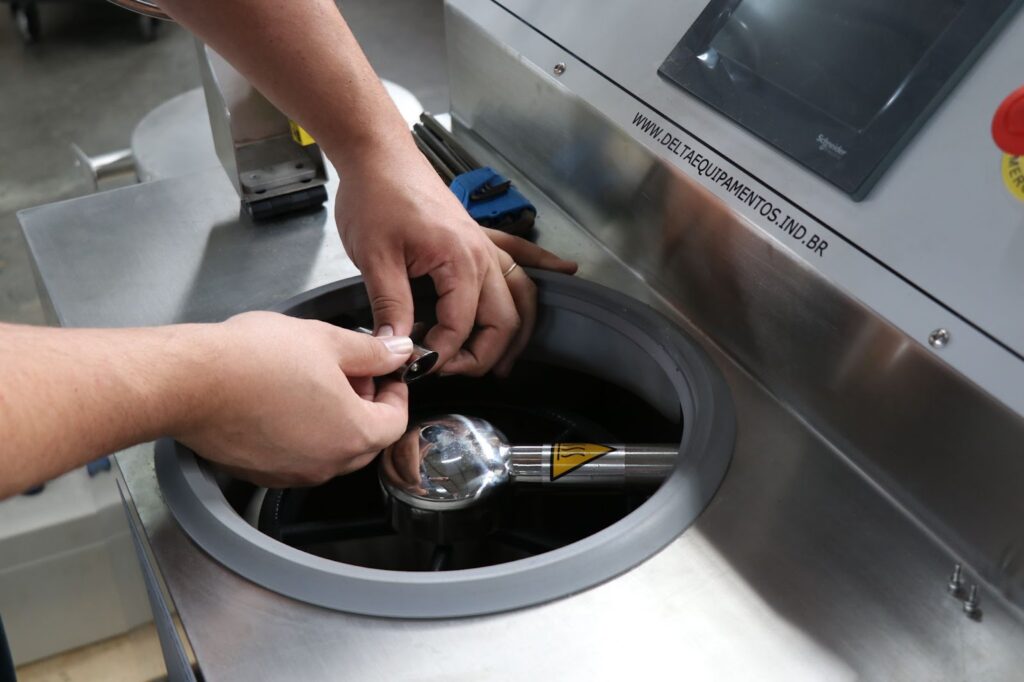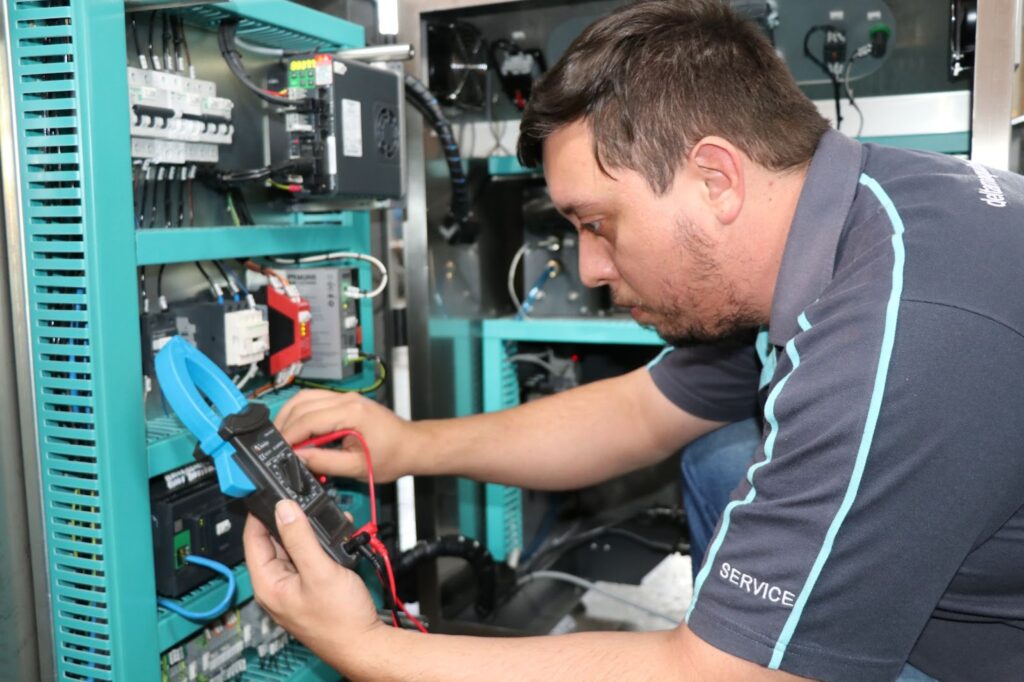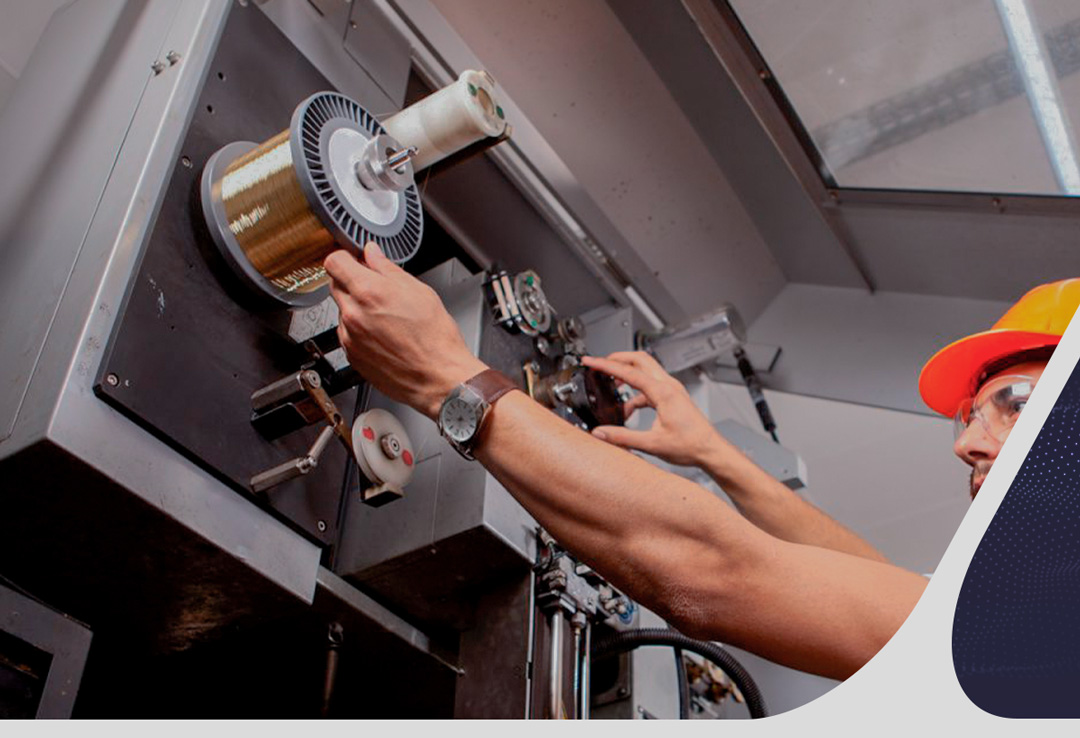Knowing how to identify and apply types of industrial maintenance helps promote greater savings, productivity and time optimization. Understanding how they work is essential to develop strategies that aim to eliminate losses and prolonged periods of inactivity.
In this article, we list the main types of textile maintenance and their characteristics, as well as tips on how to apply them. Check it out!
But after all, what are the types of industrial maintenance?
Having knowledge of the types of industrial maintenance is essential to better plan activities and, thus, promote productivity.
On our blog we always reinforce the importance of textile maintenance! This is because we believe that a planned, organized, well-structured and technological industry is capable of promoting evolution throughout the sector.
It’s that simple! Brazil is the largest complete textile chain in the West, according to Abit. And the more planning, the more efficiency and, consequently, even more textile development.
Acreditamos que a tecnologia, organização, planejamento e inovação são fundamentais para o crescimento da sua indústria e, em sequência, do mercado brasileiro.
Therefore, to have excellent maintenance management you need to understand and know how to apply the different types of industrial maintenance. Only in this way will it be possible to avoid rework and production bottlenecks.
The greater the productivity and performance of employees and operations, the better the results.
After all, there is no point in having technological textile machines and competent employees if the maintenance steps do not occur in a planned and preventive manner, eliminating unnecessary stops.
Therefore, we have listed the main types of industrial maintenance below for you to start applying these techniques in your industry! Check it out!
Preventive maintenance
The Preventive Maintenance is the most efficient and important for results. Because the main objective of this process is to prevent major problems, eliminating losses to operations and your industry.
It is essential not only to promote productivity, but also to extend the useful life of equipment, increase employee safety, eliminate repairs, ensure better management and optimization of resources.
Therefore, the most efficient way to avoid leaving equipment idle for a long period is to create a detailed preventive maintenance plan.
That is, to avoid damage to equipment, periodic inspections must be carried out to evaluate assets and their characteristics. Here it is necessary to analyze its operation, at the same time as observing the condition of the components and carrying out small repairs to maintain perfect functioning.
The aim is to build a plan with routine maintenance tasks to avoid major corrections and maintain as few operational interruptions as possible. After all, with everything planned, it will be possible to schedule checks in a way that causes less impact on production.
Not to mention that, with periodic monitoring, more efficient inspection, maintenance and production standards can be built and identified. The study here, therefore, contributes to the development of improvements.
Following this plan is essential to save time and money. Bearing in mind that an unexpected stop or failure means the same as having unplanned costs.
An article on the subject highlights some examples of preventive activities, such as:
- Standardization of materials;
- Adaptation of equipment based on experience;
- Training;
- Study of the useful life of equipment;
- Implementation of scheduled inspections;
- Application of preventive interventions.
Planned Corrective Maintenance

Planned Corrective Maintenance, as its name suggests, is a process that aims to correct failures before they become major problems.
Because it is planned, it occurs together with Preventive. This is because the necessary repairs found during inspections are carried out at these times.
The sense of urgency is less than Unplanned Corrective (which we will see in the next topic), but it still requires greater attention and care than Preventive.
Therefore, component replacements and more complex repairs of machines and equipment are carried out here. But as they were identified in advance, they can be scheduled in order to organize production and avoid unnecessary losses.
This is also the time to carry out interference with the equipment strategically. In other words, imagine that management was already aware of the poor performance of a certain asset, but it was intentional to wait for failure.
This is because this way, the manager will better organize resources and identify the ideal time to stop and change parts, for example. The safety of employees is also highly considered here.
Unplanned Corrective Maintenance
Unplanned Corrective is one of the simplest types of textile industrial maintenance.
This is industrial maintenance that only works in times of crisis. In other words, it is used when an unforeseen or uncalculated failure occurs. And for this reason, it is the one that usually generates the highest costs.
We highlight here that your industry will not always have a team available to carry out emergency maintenance in order to reduce costs and downtime.
Damage and defects, unfortunately, are quite common. But the industry that does not plan, prevent or organize itself will be counting on luck, making the business unsustainable.
Therefore, it is essential to avoid this type of maintenance to promote greater financial and productive health.
Predictive Maintenance
Predictive Maintenance consists of studying equipment to predict when it will be necessary to intervene on the equipment.
It is necessary to identify the cause of the defect and evaluate, for example, which part is ideal to replace the damaged one. There is a whole analysis behind that acts strategically in maintenance in order to predict and apply repairs.
The diagnosis can be obtained by studying algorithms in the software of technological machines. After all, they usually point out the time when it will need revision, and can schedule and plan the stoppage.
It is possible to say that this maintenance aims to prevent equipment deterioration. That is, it acts at the right and appropriate time, before breakage or failure occurs.
According to the article already mentioned in this text, some of the maintenance activities are:
- Monitoring scope;
- Skill required to operate;
- Application and breakdown time.
Ideally, this maintenance should occur after the application of the preventive culture. Otherwise, it will only correspond to data collection activities.
Detective Maintenance

Finally, Detective Maintenance occurs when the processes or systems used in your industry do not allow failure to be detected in advance.
This is a procedure that aims to identify flaws and problems that are imperceptible to many. In this way, the inspection, which occurs more thoroughly, will probably result in planned corrective maintenance.
To this end, periodic tests are carried out to find inconsistencies in assets and find unusual behaviors that can be ignored in everyday life.
How to apply them?
To apply all types of industrial maintenance mentioned above it is necessary to plan, except in the case of Unplanned Corrective. In any case, remember, this should be avoided as much as possible to eliminate unnecessary costs of resources and time.
Therefore, it is necessary to start structuring Maintenance Planning and Control (PCM). This plan consists of a set of strategies and actions that aim to avoid failures, correct defects and improve production.
Only in this way will it be possible to study, analyze, collect and share the necessary information for all sectors of your industry.
To do this, it is essential to collect data, monitor indicators, create an Operational Procedure (OP), prepare a financial budget or be aligned with the sector, define deadlines and control services.
And of course, count on well-trained employees and a qualified technical team. See if the company that provides industrial maintenance services guarantees extensive product knowledge and if they have analytical experience.



